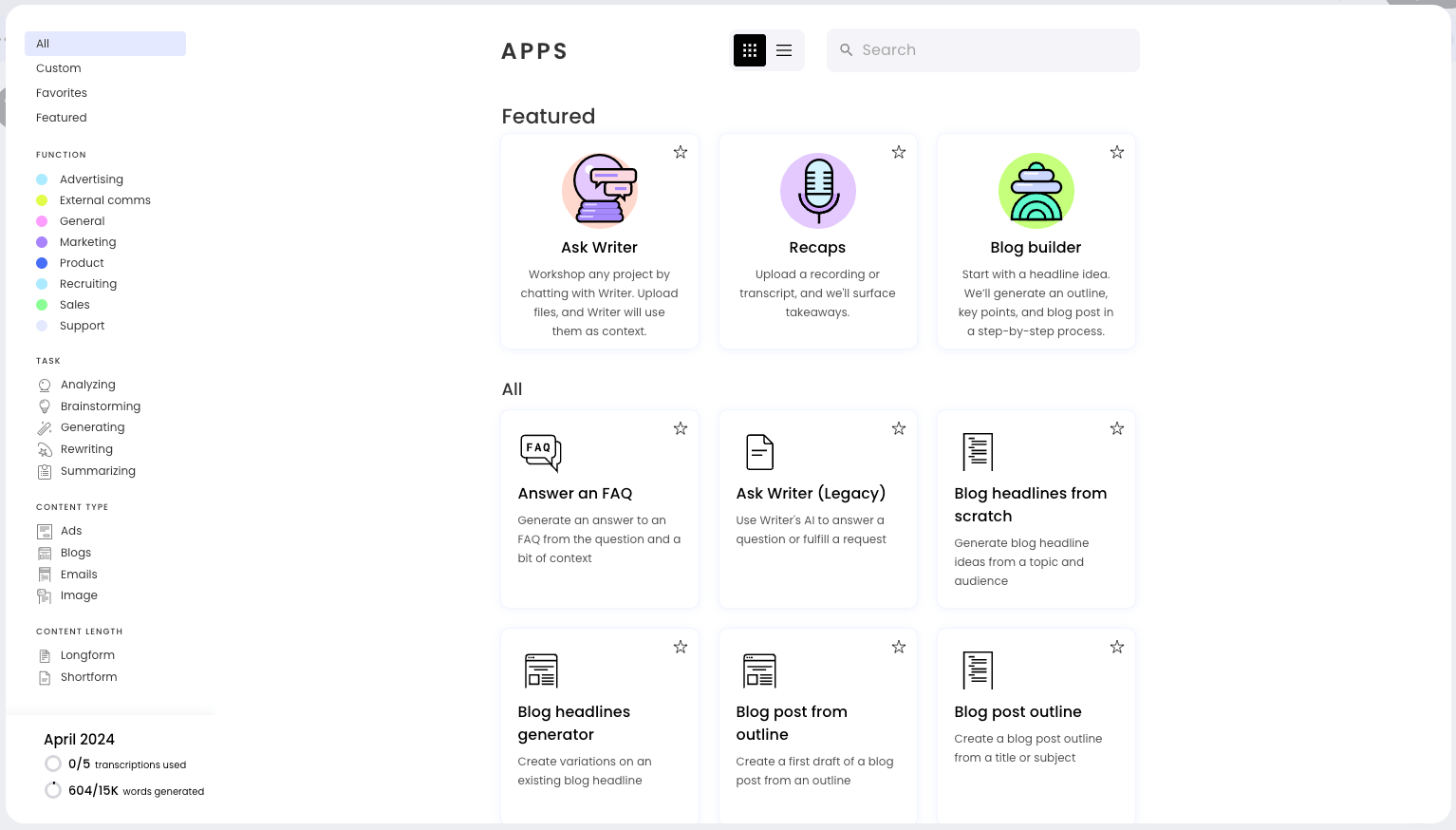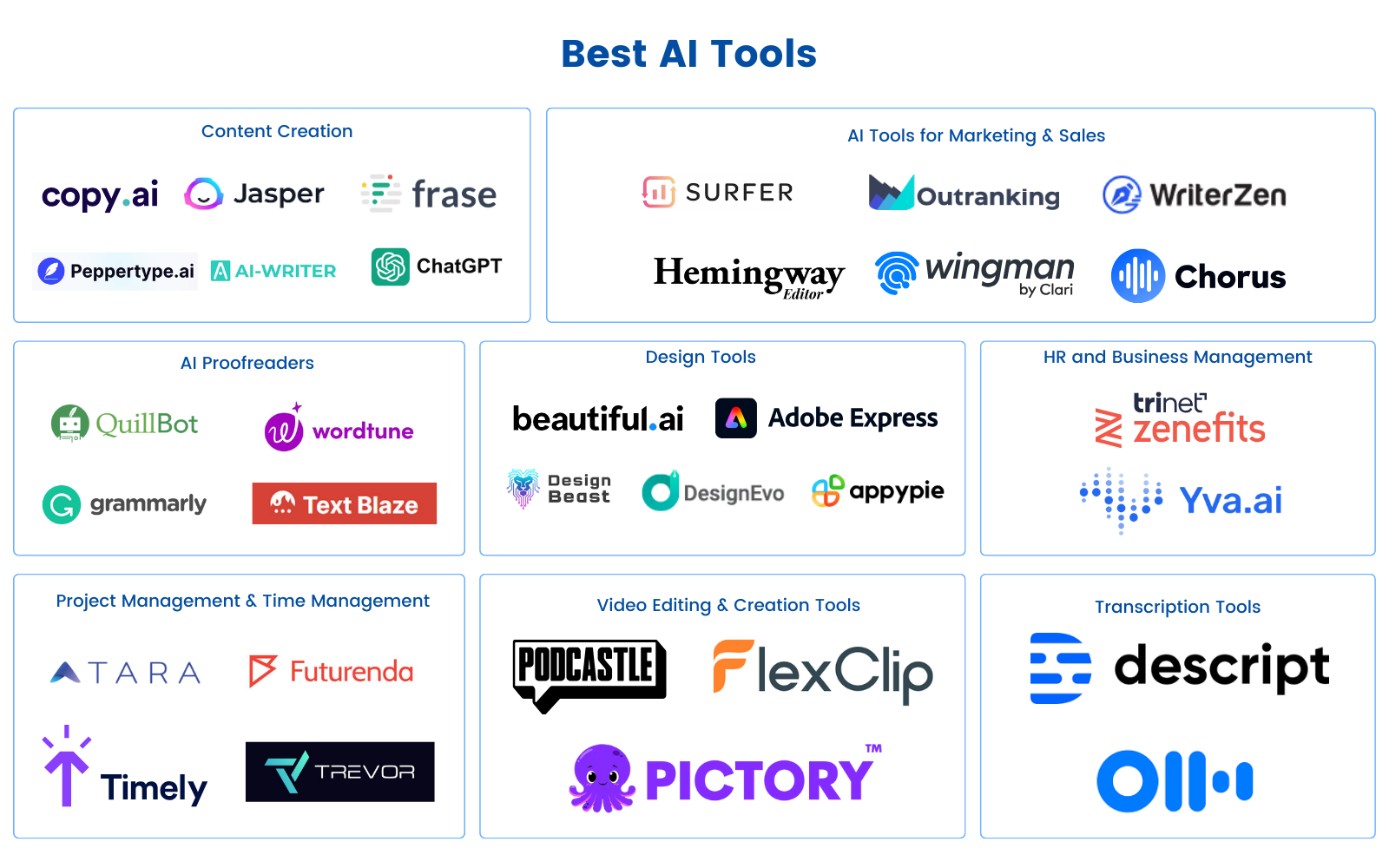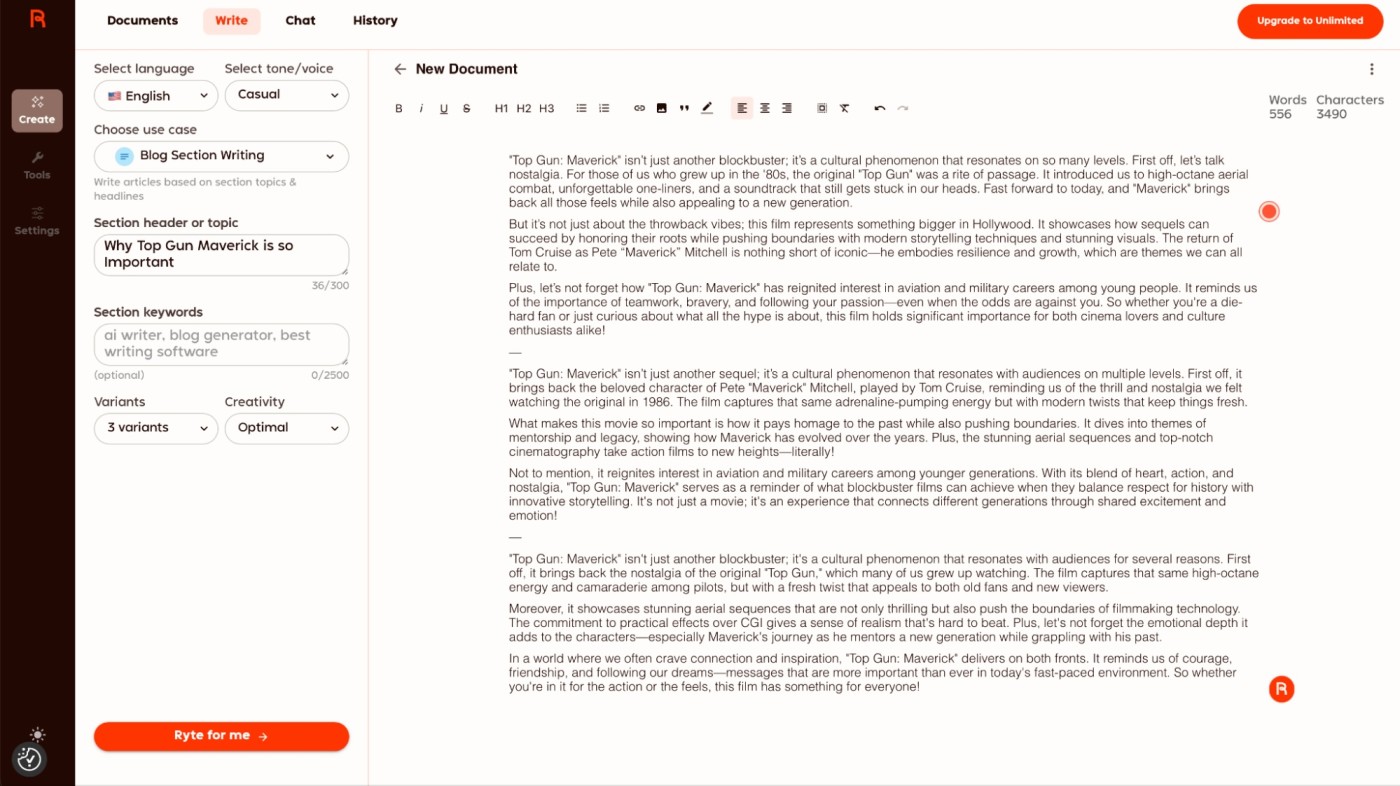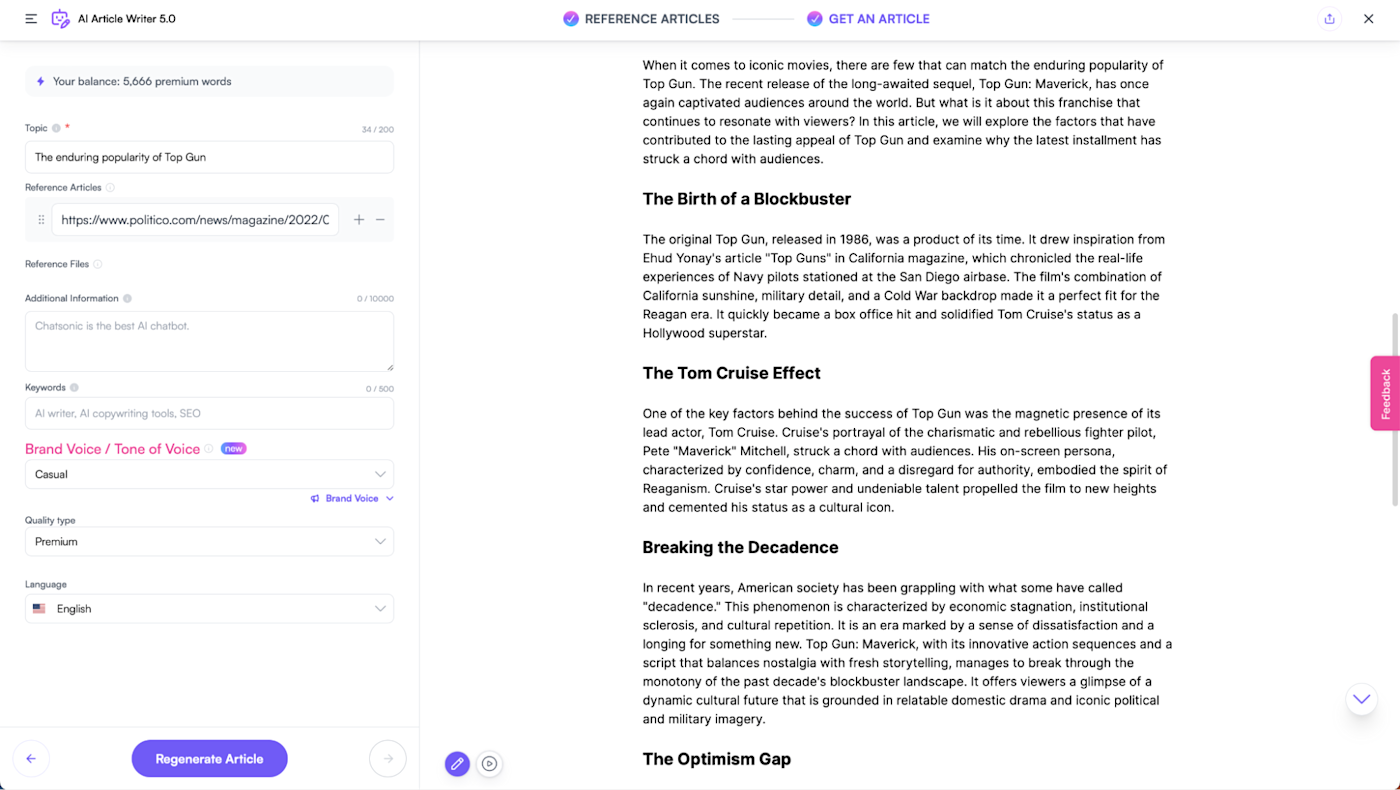The Rise of AI in Remote Content Creation
AI-Powered Content Writing: A 2025 Perspective
The landscape of remote work is continuously evolving, and content creation is no exception. As we approach 2025, Artificial Intelligence (AI) is becoming an indispensable part of how remote teams produce content. AI-powered writing tools are no longer a futuristic concept; they are now essential for boosting efficiency and productivity.
These tools assist with various tasks, from brainstorming ideas to optimizing content for search engines. This evolution allows remote content creators to focus on strategy and creativity while AI handles the more repetitive aspects of content production.
Top AI Writing Tools for Remote Teams
Several AI writing tools are emerging as leaders in the remote work space. These platforms offer features that cater specifically to the needs of remote teams, enhancing collaboration and streamlining workflows. Tools like Grammarly, which helps to maintain a consistent tone and style, are essential for teams.
Other AI tools can generate content outlines, suggest keywords, and even create entire articles based on a few prompts, saving valuable time and resources. These tools are essential for remote teams looking to boost their content output.

Streamlining Remote Content Workflows with AI
AI-Driven Tools for Enhanced Team Collaboration
Effective collaboration is crucial for remote teams, and AI offers several solutions to enhance this. AI-driven project management tools help teams organize tasks, track progress, and communicate effectively. Platforms like Trello and Asana now incorporate AI features that automate task assignments, provide progress reports, and predict potential roadblocks.
These tools ensure that remote teams remain connected and productive, regardless of their physical location. They also facilitate better communication, reducing the risk of misinterpretations and delays.
Automating Repetitive Tasks in Content Creation
One of the most significant benefits of AI is its ability to automate repetitive tasks. This is particularly valuable in content creation, where processes like formatting, proofreading, and optimizing for SEO can be time-consuming. AI writing tools can handle these tasks efficiently, freeing up content creators to focus on more strategic aspects of their work.
For example, AI can automatically generate alt text for images, optimize meta descriptions, and even create social media posts from blog content. Automation not only saves time but also reduces the chance of errors, ensuring high-quality content.
Best AI Writing Software for Remote Work in 2025
AI Writing Assistants for Remote Content Creators
AI writing assistants are becoming essential for remote content creators. These tools go beyond basic grammar and spell checks, offering advanced features like tone analysis, style suggestions, and even content generation. Tools like Copy.ai and Jasper can help remote teams generate marketing copy, blog posts, and other forms of content faster and more efficiently.
These assistants also provide valuable feedback on readability and engagement, helping content creators produce high-quality material. They act as a co-pilot, making the writing process smoother and more effective.
How AI Can Help Remote Teams Generate Content
AI can assist remote teams in generating content in several ways. From brainstorming new ideas to creating entire pieces of content, AI-powered tools can help streamline the content creation process. For example, an AI tool can analyze trending topics and suggest relevant content ideas.
Once a topic is chosen, AI can help create an outline, generate a first draft, and optimize the content for SEO. This not only makes content production faster but also ensures that the content is relevant and engaging for the target audience.

Future of AI Writing Tools for Remote Content Creators
Trends in AI-Powered Content Generation
The future of AI-powered content generation is poised for significant advancements. We can expect to see more sophisticated AI models that can generate content that is indistinguishable from human writing. These tools will also become more personalized, adapting to the specific needs and preferences of individual users and teams.
Another trend is the integration of AI with other tools, creating seamless workflows that enhance productivity and collaboration. We will also see more AI-powered tools that can create diverse content types, such as video scripts and interactive content.
The Role of AI in Shaping Future Remote Work
AI is set to play a pivotal role in shaping the future of remote work. As AI tools become more advanced, they will continue to automate repetitive tasks, freeing up remote workers to focus on more strategic and creative projects. This will lead to increased productivity and greater job satisfaction.
Moreover, AI will enhance communication and collaboration, ensuring that remote teams remain connected and effective. AI-powered tools will also provide valuable insights and data, helping remote teams make informed decisions and achieve their goals.
AI-Powered Content Creation Tools for Remote Workers
AI Tools for Social Media Content Creation
Creating engaging social media content can be time-consuming, but AI tools are changing the game. AI-powered platforms can generate social media posts, create eye-catching visuals, and even schedule content for optimal reach. Tools like Canva and Buffer utilize AI to assist with content creation and scheduling.
These tools help remote workers maintain a consistent social media presence without spending hours on manual tasks. They also ensure that content is optimized for different platforms, increasing engagement and visibility.
AI Tools for Blog and Article Writing
Writing blog posts and articles is a crucial part of content marketing, and AI tools can significantly streamline this process. AI writing assistants can help with everything from researching topics to drafting and optimizing content. Tools like Writesonic and Article Forge are designed to generate long-form content quickly.
These tools can also analyze existing content, suggesting ways to improve readability and SEO. They help remote content creators produce high-quality blog posts and articles in a fraction of the time.

Remote Work Content Generation with AI
AI for Content Ideation and Brainstorming
Coming up with fresh content ideas can be challenging, but AI can provide a much-needed boost. AI-powered brainstorming tools can analyze trending topics, suggest relevant keywords, and even generate unique content ideas based on a few prompts. These tools help remote teams overcome creative blocks and develop innovative content strategies.
By tapping into vast databases and analyzing user behavior, AI can help content creators stay ahead of the curve and create content that resonates with their target audience. This can lead to increased engagement and improved content performance.
AI for Content Optimization and SEO
Optimizing content for search engines is essential for visibility, and AI-powered tools can help with this. These tools can analyze content for SEO best practices, suggest relevant keywords, and even optimize meta descriptions and title tags. Tools like Frase and Surfer SEO are designed to help content creators improve their search rankings.
AI ensures that content is not only engaging but also easily discoverable by search engines, maximizing its reach and impact. By automating SEO tasks, AI allows remote teams to focus on creating high-quality content rather than getting bogged down by technical details.
Choosing the Right AI Content Writing Tool
Factors to Consider When Selecting an AI Tool
Selecting the right AI content writing tool requires careful consideration of various factors. Remote teams should evaluate their specific needs, such as the types of content they produce, the size of their team, and their budget. They should also consider the tool's ease of use, integration capabilities, and customer support.
Another important factor is the quality of the AI output. While some tools excel at generating long-form content, others may be better suited for short-form copy or social media posts. It's important to choose a tool that aligns with your team's specific requirements and goals.
Comparing the Top AI Writing Software Options
Several AI writing software options are available, each with unique features and benefits. ChatGPT is a versatile option for generating various content types, while Copy.ai is best for marketing copy. Jasper is a powerful tool for long-form content, and Grammarly excels at grammar and style checks.
Remote teams should compare these tools based on their specific needs and preferences. It's often helpful to try out a few different tools before committing to one, ensuring it's the best fit for their workflow and objectives.

Key Takeaways:
- AI is transforming remote content creation: AI tools are streamlining workflows, boosting productivity, and enhancing collaboration for remote teams.
- AI assists with various content tasks: From brainstorming and writing to optimizing for SEO, AI tools are becoming essential for content creators.
- Choose tools based on specific needs: Remote teams should evaluate factors like ease of use, integration capabilities, and customer support when selecting an AI writing tool.
- AI enhances productivity: By automating repetitive tasks, AI frees up remote workers to focus on more strategic and creative projects.
- The future of content creation is AI-driven: We can expect to see more sophisticated and personalized AI tools that continue to shape the landscape of remote work.
